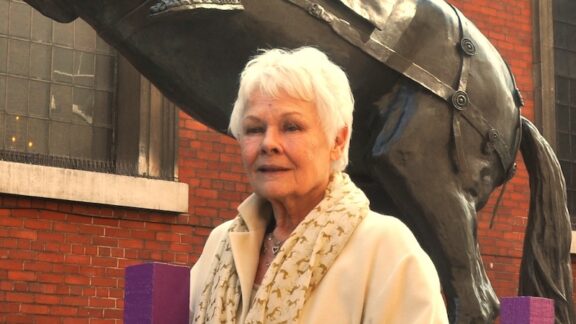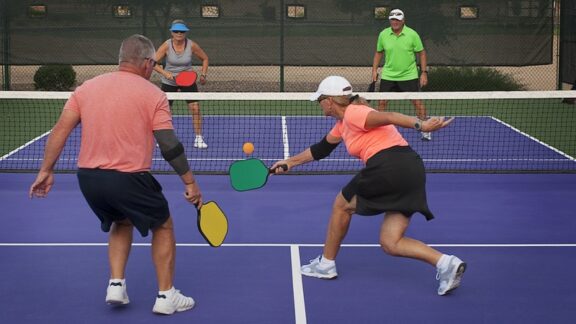Broken heart syndrome, aka takotsubo cardiomyopathy, is a stress-related heart condition that can affect healthy people of all ages, though some individuals are more at risk.
June Carter Cash died in May 2003. Her longtime husband, Johnny Cash, died less than four months later. Ninety-year-old Bernard Jordan, fondly known in Britain for escaping a nursing home to attend D-Day commemorations, died in early 2015 – his wife of 50 years, Irene, died less than a week later. You may have heard similar stories: after decades of marriage, a spouse dies soon after their loved one has passed.
Is this simply coincidence? After all, millions of grieving people outlive a beloved spouse for years. In some cases, perhaps the second death is random. In other instances, however, it may have resulted from broken heart syndrome. Also known as takotsubo cardiomyopathy and stress cardiomyopathy, the condition isn’t usually fatal, and it often affects younger people, and for reasons other than grief – mostly for stress-related reasons.
Stress and Health
Many people dismiss stress as being a part of life. However, stress has been known to cause a variety of health problems. At best, it can contribute to anxiety, depression, headaches, sleep issues, weight gain, concentration problems, and muscle pain. It also puts you at increased risk of health problems, including digestive problems, headaches, heart disease, heart attack, high blood pressure, and stroke.
Stress and broken heart syndrome
In response to sudden fear or anxiety, the body releases the hormones adrenaline and cortisol. Short-term, this can cause heart palpitations, increased respiration rate, increased blood pressure, and, if you’re really overwhelmed, fainting. Most of the time, there is no immediate physical danger when your body reacts to stress. At other times, it can cause a more concerning condition, broken heart syndrome.
In broken heart syndrome, a part of your heart temporarily enlarges and doesn’t pump well, while the rest of your heart functions normally or with even more forceful contractions. Sometimes, though, it can lead to severe, short-term heart muscle failure, says the American Heart Association.
How to recognize broken heart syndrome

The symptoms of takotsubo cardiomyopathy can easily be confused with a heart attack. They include chest pains, shortness of breath, and irregular heartbeats. Cardiogenic shock may also occur with cardiomyopathy, the AHA warns, meaning the weakened heart can’t pump enough blood to meet the body’s needs – a potentially fatal problem.
Who is most at risk?
Research reported in the Journal of the American Heart Association suggests that broken heart syndrome is on the rise, especially among middle-age and older women, ages 50 to 74.
Overall, women are more at risk for takotsubo cardiomyopathy than men, accounting for nearly 90% of all cases. The risk decreases for women over 75, although older men and women with preexisting health problems may be more vulnerable to severe consequence.
Most importantly, takotsubo cardiomyopathy is most common in people under stress, especially those who have received devastating news, confronted extreme conflict, or experienced an acute illness or severe accident. This includes death of a loved one, divorce, job loss, and a life-changing event.
Avoiding broken heart syndrome
Doctors make some of the same recommendations for preventing broken heart syndrome that they do for preventing heart disease, including diet and exercise. They also emphasize stress management: meditation, laughter, exercise, yoga, maintaining positive relationships, and so on.
Related: Tips for reducing heart attack and stroke risk
Reacting to the diagnosis
Broken heart syndrome is usually temporary and treatable, and usually reverses itself within days or weeks. However, it is a very real physical condition and should be taken seriously.
If you or someone you know is having heart attack symptoms, you should see a medical professional immediately. If the symptoms arise after a stressful occurrence, don’t assume that it is broken heart syndrome. The difference between heart attacks and broken heart syndrome can only be determined by advanced medical tests such as an EKG.
If you’ve had broken heart syndrome, it is a good idea to get under the care of a cardiologist to get proper care and avoid future cardiac problems.
If someone you know is diagnosed with takotsubo cardiomyopathy – or perhaps simply under severe stress – you can help by showing compassion, helping with tasks, and being an active listener. Be patient, empathetic, and understanding, because healing can be a long process.




